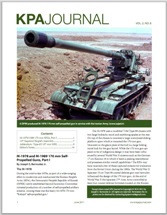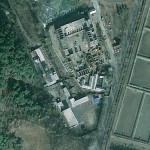Institute for Far Eastern Studies (IFES)
2012-1-12
The adoption of Act No. 1194 by the Supreme People’s Assembly of the DPRK was recently confirmed. “The Democratic People’s Republic of Korea’s Corporate Law” or the “Corporate Law” was reported to have passed more than a year ago in November 11, 2010.
The “Corporate Law” is evaluated as an important indication of the direction of the economic policy of North Korea since Kim Jong-un was appointed as the next successor at the Third Party Conference held on September 28, 2010.
The law consists of five chapters: 1) Basic Principles of the Corporation; 2) Organization of the Corporation; 3) Management Organization of the Corporation; 4) Business Management Activities of the Corporation; and 5) Projects of the Corporation.
The first article of this act “The Mission of the Corporate Law” states that the law was enacted to, “contribute to the development of the people’s economy and to secure the management system of the socialist corporations by establishing the system and order for the organization and management activities.”
The second article, “The Definition of Corporation” defines a corporation as an “economic unit that operates as an organization that directly handles the labor, facilities, equipment, materials, and finances for the production or volunteer activities.”
Article 9, “The Legal Rights and the Legal Protection Principles,” indicates that the “legal rights and interests of the corporations are protected by the government.” Article 10, however, specifically states that this particular law does not apply to the special trade zones and the foreign investment companies.
Article 18, “The Organization of the Corporation,” has a clause that states “the managing organization has the jurisdiction to close down corporations for unreasonable or lack of prospects that does not meet the standards and the demands of the national policy and reality.”
Article 21 depicts a manager as a “person representing the corporation and responsible for the entire business.” The manager, chief engineer, and assistant manager’s specific responsibilities were also explicated. The hierarchy was clearly indicated where the assistant manager was to report to the chief engineer and the manager while the chief engineer has to report to the manager.
Article 29 affirms that a business is to be managed based on established business and corporate strategies in which every year a draft of the people’s economy plan must be submitted to the appropriate authorities. The written economic plan must be followed on a daily, monthly, quarterly, and by index basis (Article 30).
Articles 31 to 37 include specifics on the improvements of production technology while Articles 38 to 43 include regulations to enhance the management system.
In particular, Article 42 stipulates that the corporation must promote sales based on supply plans and contracts. Those sales that do not follow the plan and the contract cannot be sold.”
Article 44 states, “The appropriate amount of labor is scientifically determined and managed based on the socialist distribution principles and a precise socialist wage system must be implemented.”
In other words, socialist principles will be applied to both the sales of merchandise and wage system. While the corporation will receive autonomy in many areas, clear regulations are provided for sales in addition to evaluation and incentive system for labor.
In recent years, North Korea has continuously passed economic laws for economic construction and enhancing the lives of the North Korean people. Such laws include the following: The Agricultural Law passed on November 3, 2009; Real Estate Management Law on November 11, 2009; the Country of Origin for Export Law on November 25, 2009; and Comprehensive Equipment Import Law on November 11, 2009.


